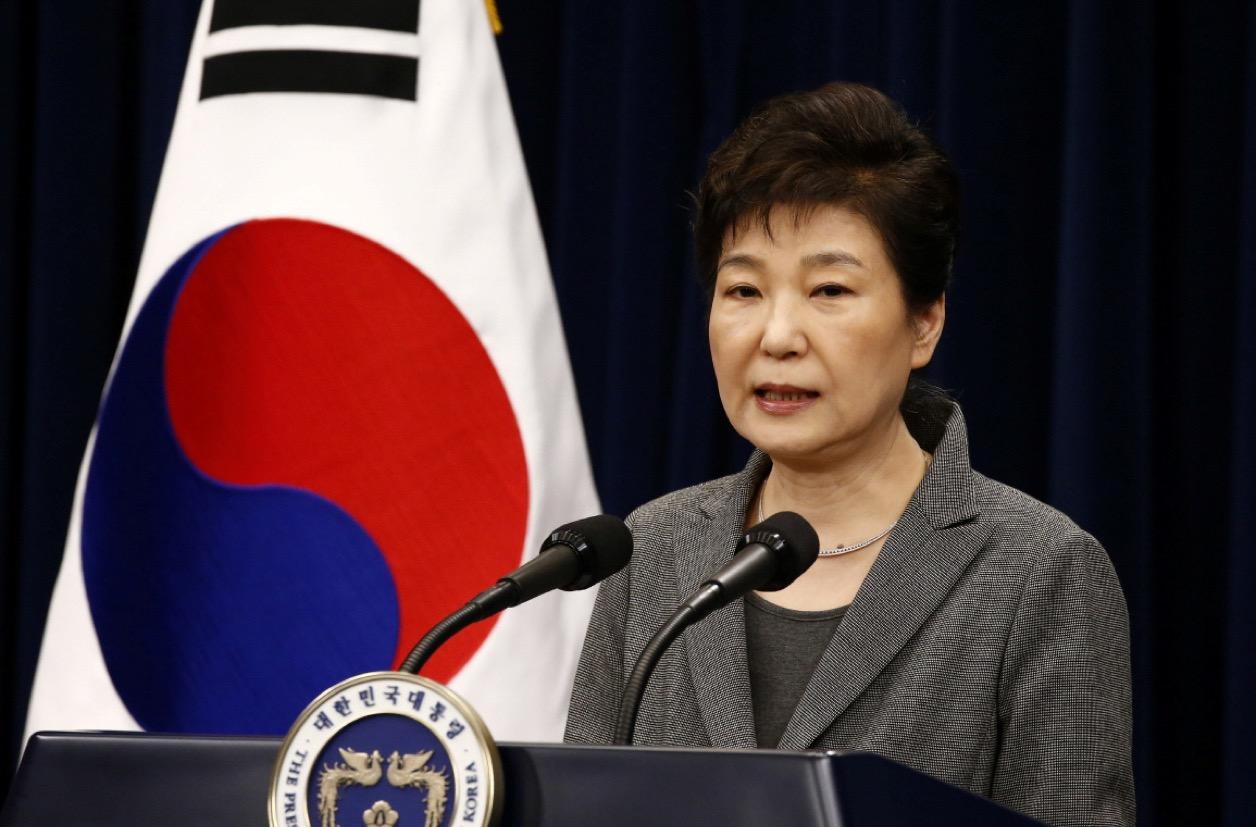South Korea’s parliament impeaches President Park Geun-hye
South Korean President Park Geun-hye speaks during an address to the nation, at the presidential Blue House in Seoul, South Korea, on Nov. 29.
South Korean lawmakers on Friday voted to impeach President Park Geun-hye, stripping away her sweeping executive powers over a corruption scandal and opening a new period of national uncertainty.
The National Assembly ballot immediately transferred Park's authority to the prime minister, pending a ruling by the Constitutional Court on whether to ratify the decision and permanently remove the president from office.
A ruling could take up to six months, during which time Park will remain in the presidential Blue House — a leader in name only.
The situation leaves South Korea facing an extended stretch of political anxiety and policy paralysis at a time of slowing economic growth, rising unemployment and elevated military tensions with nuclear-armed North Korea.
"I am so sorry for all South Koreans that I created this national chaos with my carelessness," Park said in a televised statement after the vote.
"But we should not let our guard down for a single minute, given the grave situation we face at home and abroad from our economy to the national defense.
"In this time of uncertainty, the lives of our people should never be disregarded," she said calling on the government to unite and minimise any fallout from the resulting power vacuum.
Celebrations
The motion to impeach was adopted by 234 votes to 56, easily securing the required two-thirds majority in the 300-seat chamber and triggering wild celebrations among hundreds of anti-Park activists gathered outside the National Assembly.
It was a startling fall from grace for a politician who had run for the Blue House as an incorruptible candidate, declaring herself beholden to nobody and "married to the nation."
After just under four years in power, she now faces the prospect of going down in history as the first democratically elected South Korean president to be kicked out of office.
The impeachment motion had accused Park of constitutional and criminal violations ranging from a failure to protect people's lives to bribery and abuse of power.
Supported by all 171 opposition and independent lawmakers, its adoption was made possible by an anti-Park faction within the president's Saenuri party.
The result means Prime Minister Hwang Kyo-ahn, a former prosecutor who has never held elected office, suddenly finds himself in charge of Asia's fourth largest economy and supreme commander of South Korea's armed forces.
National defense pledge
In a televised address just hours after the vote, Hwang stressed that the country was primed to respond to any North Korean provocation.
"The government will maintain a watertight national defense posture," Hwang said, pledging to keep the country safe and prosperous.
"We will stabilize the financial and currency markets and make efforts to maintain South Korea's sovereign ratings," he said.
The push for impeachment was driven by massive protests that have seen millions take to the streets of Seoul and other cities in recent weeks, demanding Park's ouster.
"This has been an honorable civil revolution in which our people defeated an incompetent leader," the president of the main opposition Democratic Party said after the vote.
The scandal that felled Park focused on her friendship with long-time confidante Choi Soon-sil.
Choi is awaiting trial on charges of meddling in state affairs and using her Blue House connections to force dozens of conglomerates to donate around $70 million to two foundations she controlled.
In a first for a sitting South Korean president, Park has been named a "suspect" by prosecutors investigating the case.
The Constitutional Court is expected to validate her impeachment, starting the clock running on a 60-day window for holding fresh presidential elections.
"The political paralysis that has enveloped governmental decision-making over the past month is likely to continue for at least the next four to eight months," said Scott Snyder, a Korea specialist at the Council on Foreign Relations in Washington.
"That makes it potentially more vulnerable to North Korean provocations, but the situation also makes it more likely that the Korean public would expect a strong response to any attempt to take undue advantage of South Korea’s political crisis," Snyder said.
By AFP's Jung Ha-Won in Seoul.
